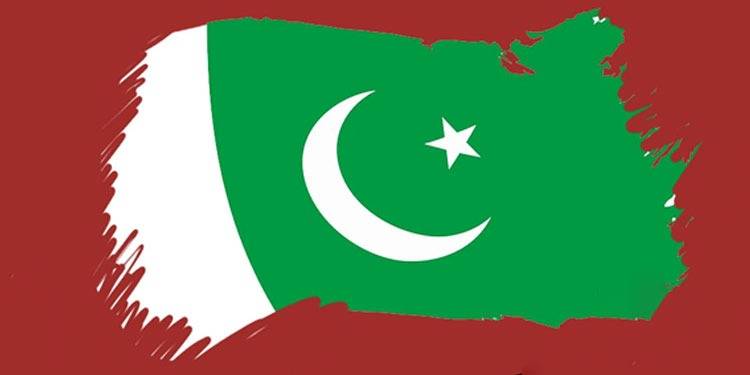
In a fiery speech at the Parliament, Senator Danesh Kumar brought attention to just some of the myriad of challenges confronting the nation's beleaguered religious minorities.
Kumar, in presenting just one glaring example, pointed out how the 75-member strong federal cabinet boasted not a single member who happened to be a religious minority. "Unfortunate! Unfortunate! Not a single individual of 75! I don't covet a ministry. But why cannot a individual from the minorities sit in place of (Defence Minister) Khawaja Asif or (Planning Minister) Ahsan Iqbal."
Kumar also spoke about how the National Assembly employed less than one per cent minorities. "I urge you do deliver a ruling," the Balochistan Awami Party (BAP) Senator said. Pakistan, he said, was becoming a "joke" before the world when it spoke of equality.
The senator also shed light on how many Hindu temples and gurdwaras under the Evacuee Trust Property Board (ETPB) had Muslim caretakers. "I dare you to appoint non-Muslims as caretakers for mosques. Would a pandemonium not ensue in wake of such a move? Why such grave injustice? Does Pakistan not trust its minorities enough," he quipped.
Poor representation, however, is just one of the myriad challenges confronting Pakistan's beleaguered minorities. Scores grapple with securing similar rights which would be dubbed fundamental elsewhere across the world.
A school in Punjab’s Attock district expelled four Ahmadi students over their confession earlier in September.
Tahir Khan*, a relative of the students, said they had been expelled for simply being Ahmadi. He said a class fellow of one of the students had been harassing one of the students for some time. The students, Khan said, were expelled after some parents prevailed on school principal Kulsoom Awan.
He also presented a document on the expulsion reading that the students had been expelled due to their confession. “The following students who were studying in this institute are being withdrawal (sic) on the basis of Qadianiat* Religion,” the document read. The institution, the document read, was not in a position to let them continue.
Human rights minister Riaz Hussain Pirzada spoke about the prevailing situation being such that nobody could even dare mention Nobel Prize-winning physicist Abdus Salam. Salam, it is common knowledge, was a noted member of the Jamaat-e-Ahmadiyya.
On being queried if his ministry had strived to overcome rights challenges confronting the nation, he said the ministry was not in a position to hold anybody accountable. We look towards other ministries and police do so, Pirzada said.
Every year, several women belonging to minority communities, especially Hindus in Sindh, are abducted and forcibly converted by religious extremists. Pakistan’s minority communities have long faced the issue of forced marriages and conversions. According to the Peoples Commission for Minorities’ Rights and the Centre for Social Justice, 156 incidents of forced conversions took place between 2013 and 2019.
Given the grim situation, safe to say Pakistan's religious minorities stand damned. Damned if they 'do' damned if they don't.
Kumar, in presenting just one glaring example, pointed out how the 75-member strong federal cabinet boasted not a single member who happened to be a religious minority. "Unfortunate! Unfortunate! Not a single individual of 75! I don't covet a ministry. But why cannot a individual from the minorities sit in place of (Defence Minister) Khawaja Asif or (Planning Minister) Ahsan Iqbal."
Kumar also spoke about how the National Assembly employed less than one per cent minorities. "I urge you do deliver a ruling," the Balochistan Awami Party (BAP) Senator said. Pakistan, he said, was becoming a "joke" before the world when it spoke of equality.
The senator also shed light on how many Hindu temples and gurdwaras under the Evacuee Trust Property Board (ETPB) had Muslim caretakers. "I dare you to appoint non-Muslims as caretakers for mosques. Would a pandemonium not ensue in wake of such a move? Why such grave injustice? Does Pakistan not trust its minorities enough," he quipped.
Poor representation, however, is just one of the myriad challenges confronting Pakistan's beleaguered minorities. Scores grapple with securing similar rights which would be dubbed fundamental elsewhere across the world.
A school in Punjab’s Attock district expelled four Ahmadi students over their confession earlier in September.
Tahir Khan*, a relative of the students, said they had been expelled for simply being Ahmadi. He said a class fellow of one of the students had been harassing one of the students for some time. The students, Khan said, were expelled after some parents prevailed on school principal Kulsoom Awan.
He also presented a document on the expulsion reading that the students had been expelled due to their confession. “The following students who were studying in this institute are being withdrawal (sic) on the basis of Qadianiat* Religion,” the document read. The institution, the document read, was not in a position to let them continue.
Human rights minister Riaz Hussain Pirzada spoke about the prevailing situation being such that nobody could even dare mention Nobel Prize-winning physicist Abdus Salam. Salam, it is common knowledge, was a noted member of the Jamaat-e-Ahmadiyya.
On being queried if his ministry had strived to overcome rights challenges confronting the nation, he said the ministry was not in a position to hold anybody accountable. We look towards other ministries and police do so, Pirzada said.
Every year, several women belonging to minority communities, especially Hindus in Sindh, are abducted and forcibly converted by religious extremists. Pakistan’s minority communities have long faced the issue of forced marriages and conversions. According to the Peoples Commission for Minorities’ Rights and the Centre for Social Justice, 156 incidents of forced conversions took place between 2013 and 2019.
Given the grim situation, safe to say Pakistan's religious minorities stand damned. Damned if they 'do' damned if they don't.

